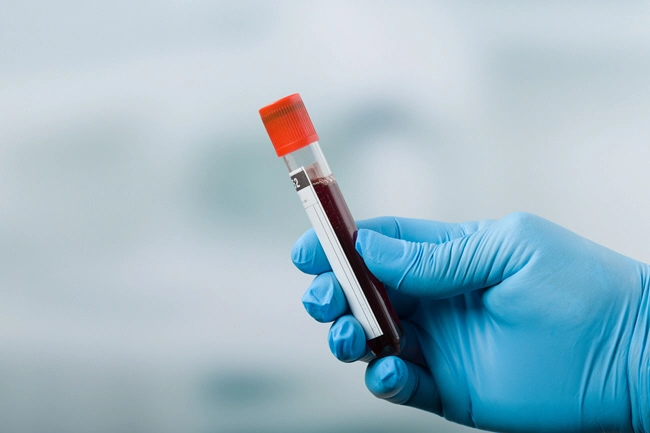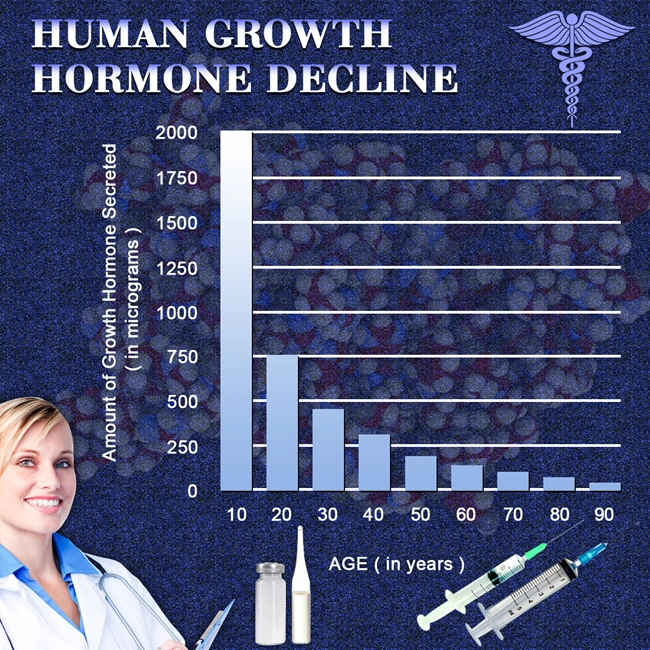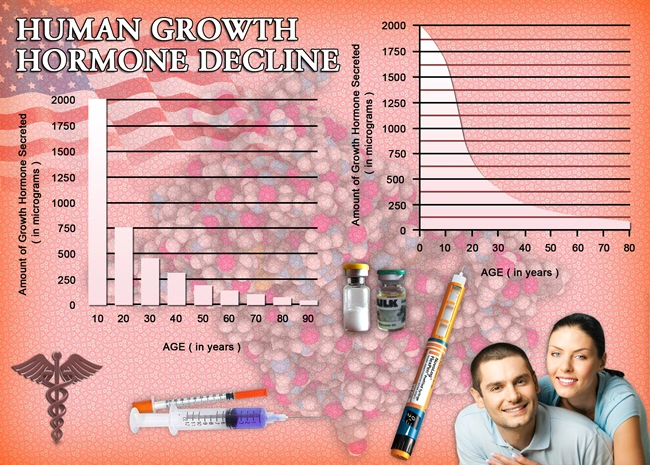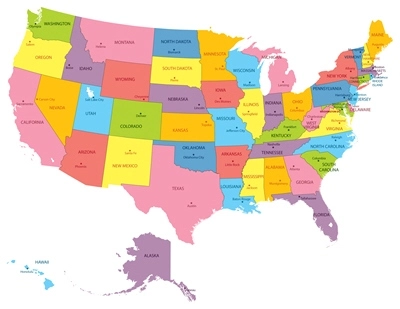
Introduction
Hair loss, a common condition among American males, has long been associated with a variety of psychological effects, including diminished self-esteem and increased anxiety. Recent studies have begun to explore the deeper connection between baldness and mental health, specifically depression. This article delves into a large-scale investigation that examines the link between hair loss and depressive symptoms in American men, shedding light on the psychological ramifications of this widespread condition.
The Prevalence of Hair Loss Among American Males
Hair loss, clinically known as androgenetic alopecia, affects approximately 50% of men by the age of 50. This condition not only alters physical appearance but can also have profound psychological effects. The societal emphasis on male appearance and the association of hair with youth and vitality can exacerbate the emotional toll of hair loss.
Methodology of the Study
The study involved a cohort of over 10,000 American males aged between 20 and 60, selected to represent a broad demographic spectrum. Participants were assessed for hair loss using the Hamilton-Norwood scale, a widely recognized measure of male pattern baldness. Concurrently, the Beck Depression Inventory (BDI) was used to evaluate depressive symptoms. This dual assessment allowed researchers to draw correlations between the severity of hair loss and the intensity of depressive symptoms.
Findings: The Correlation Between Hair Loss and Depression
The results of the study were striking. Men with higher degrees of hair loss reported significantly higher scores on the BDI, indicating a stronger presence of depressive symptoms. Notably, the study found that men who experienced hair loss at a younger age were more likely to report severe depressive symptoms compared to those who lost hair later in life. This suggests that the psychological impact of hair loss may be more pronounced when it occurs earlier in a man's life, possibly due to the increased social and professional pressures faced by younger individuals.
Psychological Mechanisms Linking Hair Loss to Depression
Several psychological mechanisms may explain the link between hair loss and depression. Firstly, hair loss can lead to a negative body image, which is a known risk factor for depression. Secondly, the societal stigma associated with baldness can lead to social withdrawal and isolation, further exacerbating depressive symptoms. Additionally, the chronic nature of hair loss can lead to a sense of helplessness and hopelessness, key components of depression.
Implications for Mental Health Interventions
The findings of this study underscore the importance of addressing the psychological aspects of hair loss in clinical settings. Dermatologists and primary care physicians should be aware of the potential mental health implications of hair loss and consider referring patients to mental health professionals when necessary. Moreover, mental health interventions tailored to men experiencing hair loss could include cognitive-behavioral therapy to address negative body image and social skills training to combat isolation.
Conclusion
This large-scale study provides compelling evidence of a significant association between hair loss and depression in American males. The psychological impact of baldness is a critical consideration for healthcare providers, highlighting the need for a holistic approach to treatment that addresses both the physical and mental health aspects of this common condition. As research continues to unravel the complex interplay between hair loss and mental health, it is crucial that men are supported not only in managing their physical appearance but also in maintaining their psychological well-being.
Contact Us Today For A Free Consultation
Dear Patient,
Once you have completing the above contact form, for security purposes and confirmation, please confirm your information by calling us.
Please call now: 1-800-380-5339.
Welcoming You To Our Clinic, Professor Tom Henderson.

- Demystifying the Effects: Unveiling the Medical Significance of Hair Loss [Last Updated On: March 2nd, 2025] [Originally Added On: March 2nd, 2025]
- Exploring the Connection Between Thyroid Health and Hair Vitality: Understanding the Impact of Thyroid Disorders on Hair Growth and Loss [Last Updated On: March 3rd, 2025] [Originally Added On: March 3rd, 2025]
- Unveiling the Silent Saboteur: The Connection Between Scalp Infections and Male Hair Loss in America [Last Updated On: March 3rd, 2025] [Originally Added On: March 3rd, 2025]
- Exploring Surgical Solutions for Hair Loss in American Men [Last Updated On: March 4th, 2025] [Originally Added On: March 4th, 2025]
- Comprehensive Guide to Understanding and Managing Male Hair Loss in America [Last Updated On: March 5th, 2025] [Originally Added On: March 5th, 2025]
- Understanding Pediatric Hair Loss: Causes, Impacts, and Treatment Options [Last Updated On: March 6th, 2025] [Originally Added On: March 6th, 2025]
- Exploring OTC Hair Loss Treatments: Efficacy, Alternatives, and Recommendations for American Men [Last Updated On: March 7th, 2025] [Originally Added On: March 7th, 2025]
- Exploring Medical Wigs: A Vital Solution for Hair Loss in American Males [Last Updated On: March 7th, 2025] [Originally Added On: March 7th, 2025]
- Comprehensive Guide to Holistic Hair Loss Remedies for American Men's Optimal Well-being [Last Updated On: March 8th, 2025] [Originally Added On: March 8th, 2025]
- Genetic Insights into Male Hair Loss: Implications for Prevention and Treatment Strategies [Last Updated On: March 9th, 2025] [Originally Added On: March 9th, 2025]
- Stress-Induced Hair Loss in American Males: A Comprehensive Medical Insight [Last Updated On: March 14th, 2025] [Originally Added On: March 12th, 2025]
- Understanding Hormonal Hair Loss in American Males: A Comprehensive Guide [Last Updated On: March 13th, 2025] [Originally Added On: March 13th, 2025]
- Chemotherapy-Induced Hair Loss in American Males: Causes, Coping, and Future Solutions [Last Updated On: March 15th, 2025] [Originally Added On: March 15th, 2025]
- Understanding Hair Loss: Separating Fact from Fiction for American Men [Last Updated On: March 15th, 2025] [Originally Added On: March 15th, 2025]
- Allergies and Hair Loss: Exploring the Link for American Males [Last Updated On: March 16th, 2025] [Originally Added On: March 16th, 2025]
- FDA-Approved Medications for Hair Loss: A Comprehensive Guide for American Men [Last Updated On: March 17th, 2025] [Originally Added On: March 17th, 2025]
- Monogenic Hair Loss in American Males: Genetics, Impact, and Treatment Options [Last Updated On: March 18th, 2025] [Originally Added On: March 18th, 2025]
- Hair Loss in American Men: A Potential Indicator of Heart Disease Risk [Last Updated On: March 19th, 2025] [Originally Added On: March 19th, 2025]
- Hair Loss in American Men: Psychological Impacts and Coping Strategies [Last Updated On: March 20th, 2025] [Originally Added On: March 20th, 2025]
- Alopecia Universalis: Understanding Causes, Treatments, and Coping Strategies for American Males [Last Updated On: March 20th, 2025] [Originally Added On: March 20th, 2025]
- Diabetes and Hair Loss in American Males: Causes, Connections, and Management Strategies [Last Updated On: March 20th, 2025] [Originally Added On: March 20th, 2025]
- Managing Hair Loss in American Males During Pregnancy: Causes and Strategies [Last Updated On: March 21st, 2025] [Originally Added On: March 21st, 2025]
- Understanding and Treating Hair Loss in American Men: Types, Causes, and Solutions [Last Updated On: March 21st, 2025] [Originally Added On: March 21st, 2025]
- Hair Loss in American Men: Genetic, Age, Stress, and Environmental Factors [Last Updated On: March 21st, 2025] [Originally Added On: March 21st, 2025]
- Antidepressants and Hair Loss in American Males: Insights and Management Strategies [Last Updated On: March 22nd, 2025] [Originally Added On: March 22nd, 2025]
- Topical Treatments for Male Hair Loss: Minoxidil, Finasteride, and Beyond [Last Updated On: March 22nd, 2025] [Originally Added On: March 22nd, 2025]
- Hair Cloning: A Revolutionary Solution for Hair Loss in American Males [Last Updated On: March 23rd, 2025] [Originally Added On: March 23rd, 2025]
- Shock Loss After Hair Transplants: Causes, Timeline, and Management for American Males [Last Updated On: March 23rd, 2025] [Originally Added On: March 23rd, 2025]
- Drug-Induced Hair Loss in American Males: Mechanisms, Culprits, and Management Strategies [Last Updated On: March 23rd, 2025] [Originally Added On: March 23rd, 2025]
- Age-Related Hair Loss in American Males: Causes, Impacts, and Management Strategies [Last Updated On: March 23rd, 2025] [Originally Added On: March 23rd, 2025]
- Essential Vitamins and Hair Loss: Insights for American Males [Last Updated On: March 23rd, 2025] [Originally Added On: March 23rd, 2025]
- Managing Receding Hairlines: Causes, Treatments, and Holistic Approaches for Men [Last Updated On: March 23rd, 2025] [Originally Added On: March 23rd, 2025]
- Revolutionizing Hair Loss Treatment: Innovations in Stem Cells, 3D Bioprinting, and Gene Therapy [Last Updated On: March 23rd, 2025] [Originally Added On: March 23rd, 2025]
- Hair Loss in American Males: Understanding Causes and Restoration Surgeries [Last Updated On: March 23rd, 2025] [Originally Added On: March 23rd, 2025]
- Medical Hair Loss in American Males: Causes, Impacts, and Treatment Options [Last Updated On: March 23rd, 2025] [Originally Added On: March 23rd, 2025]
- Steroids and Male Pattern Baldness: Risks, Genetics, and Mitigation Strategies [Last Updated On: March 23rd, 2025] [Originally Added On: March 23rd, 2025]
- Anabolic Steroids and Hair Loss: Mechanisms, Prevalence, and Management in American Males [Last Updated On: March 24th, 2025] [Originally Added On: March 24th, 2025]
- Revolutionizing Hair Loss Treatment: New Hope for American Males [Last Updated On: March 24th, 2025] [Originally Added On: March 24th, 2025]
- Thyroid Disorders and Hair Loss in American Males: Causes and Treatments [Last Updated On: March 24th, 2025] [Originally Added On: March 24th, 2025]
- Male Pattern Baldness: Advances in Treatment and Understanding [Last Updated On: March 24th, 2025] [Originally Added On: March 24th, 2025]
- Hair Loss Reversal: Success Stories and Effective Treatments for American Men [Last Updated On: March 24th, 2025] [Originally Added On: March 24th, 2025]
- Innovative Strategies to Prevent Hair Loss in American Males Undergoing Chemotherapy [Last Updated On: March 24th, 2025] [Originally Added On: March 24th, 2025]
- Hair Loss in Young American Males: Causes, Impacts, and Management Strategies [Last Updated On: March 25th, 2025] [Originally Added On: March 25th, 2025]
- Hair Follicle Miniaturization: Causes, Impacts, and Treatments for American Males [Last Updated On: March 25th, 2025] [Originally Added On: March 25th, 2025]
- Anemia and Hair Loss in American Men: Causes, Diagnosis, and Management Strategies [Last Updated On: March 25th, 2025] [Originally Added On: March 25th, 2025]
- PCOS in Men: Understanding Hormonal Imbalance and Hair Loss [Last Updated On: March 25th, 2025] [Originally Added On: March 25th, 2025]
- Telogen Effluvium in American Men: Causes, Symptoms, and Management Strategies [Last Updated On: March 25th, 2025] [Originally Added On: March 25th, 2025]
- Post-COVID Hair Loss: Causes, Symptoms, and Management Strategies for American Males [Last Updated On: March 25th, 2025] [Originally Added On: March 25th, 2025]
- Hair Loss in American Men: Societal Views vs. Medical Facts and Coping Strategies [Last Updated On: March 26th, 2025] [Originally Added On: March 26th, 2025]
- AI Revolutionizes Hair Loss Treatment: Precision, Personalization, and Future Innovations [Last Updated On: March 26th, 2025] [Originally Added On: March 26th, 2025]
- Autoimmune Disorders and Hair Loss: Mechanisms, Impacts, and Treatments for American Men [Last Updated On: March 26th, 2025] [Originally Added On: March 26th, 2025]
- Androgenetic Alopecia: Advances in Understanding and Treating Male Pattern Baldness [Last Updated On: March 26th, 2025] [Originally Added On: March 26th, 2025]
- Immune System Disorders and Hair Loss in American Males: Causes, Treatments, and Hope [Last Updated On: March 26th, 2025] [Originally Added On: March 26th, 2025]
- Hair Extensions and Permanent Hair Loss: Risks for American Males [Last Updated On: March 27th, 2025] [Originally Added On: March 27th, 2025]
- High Blood Pressure and Hair Loss: Exploring the Link in American Men [Last Updated On: March 27th, 2025] [Originally Added On: March 27th, 2025]
- Low Light Laser Therapy: A Non-Invasive Solution for Male Hair Loss [Last Updated On: March 27th, 2025] [Originally Added On: March 27th, 2025]
- Aromatherapy for Hair Loss: A Holistic Approach for American Males [Last Updated On: March 28th, 2025] [Originally Added On: March 28th, 2025]
- Postpartum Hair Loss in American Males: Causes, Symptoms, and Management Strategies [Last Updated On: March 28th, 2025] [Originally Added On: March 28th, 2025]
- Advanced Hair Loss Diagnosis: Empowering American Men with New Technologies [Last Updated On: March 28th, 2025] [Originally Added On: March 28th, 2025]
- Rogaine for Hair Loss: Benefits, Risks, and Considerations for American Males [Last Updated On: March 28th, 2025] [Originally Added On: March 28th, 2025]
- Hair Dyes and Hair Loss: Investigating the Link in American Men [Last Updated On: March 28th, 2025] [Originally Added On: March 28th, 2025]
- PRP Therapy: A Promising Solution for Hair Loss in American Males [Last Updated On: March 28th, 2025] [Originally Added On: March 28th, 2025]
- Scalp Psoriasis in American Males: Understanding and Managing Hair Loss [Last Updated On: March 29th, 2025] [Originally Added On: March 29th, 2025]
- Understanding and Managing Hair Loss in American Males: A Guide for Physicians [Last Updated On: March 29th, 2025] [Originally Added On: March 29th, 2025]
- Andropause and Hair Loss in American Males: Causes, Impacts, and Management Strategies [Last Updated On: March 30th, 2025] [Originally Added On: March 30th, 2025]
- Trichotillomania in American Males: Challenges, Treatment, and Support [Last Updated On: March 30th, 2025] [Originally Added On: March 30th, 2025]
- Efficacy of Hair Loss Shampoos for American Men: Scientific Insights and Recommendations [Last Updated On: April 1st, 2025] [Originally Added On: April 1st, 2025]
- Stem Cell Therapy: A Breakthrough in Treating Male Pattern Baldness [Last Updated On: April 3rd, 2025] [Originally Added On: April 3rd, 2025]
- Hair Loss in American Men: Impacts on Mental Health and Coping Strategies [Last Updated On: April 3rd, 2025] [Originally Added On: April 3rd, 2025]
- Minoxidil: Effective Hair Loss Solution for American Men [Last Updated On: April 6th, 2025] [Originally Added On: April 6th, 2025]
- Hair Loss and Mental Health: A Holistic Approach for American Males [Last Updated On: April 7th, 2025] [Originally Added On: April 7th, 2025]
- Central Centrifugal Cicatricial Alopecia: Understanding and Managing Hair Loss in American Males [Last Updated On: April 8th, 2025] [Originally Added On: April 8th, 2025]
- Gut Health and Hair Loss: Understanding the Connection in American Males [Last Updated On: April 8th, 2025] [Originally Added On: April 8th, 2025]
- Hair Loss After Bariatric Surgery: Causes, Management, and Recovery for American Males [Last Updated On: April 9th, 2025] [Originally Added On: April 9th, 2025]
- Hair Breakage vs. Hair Loss: Causes, Differences, and Solutions for American Males [Last Updated On: April 9th, 2025] [Originally Added On: April 9th, 2025]
- Weight Loss Diets and Hair Loss: Insights for American Men [Last Updated On: April 12th, 2025] [Originally Added On: April 12th, 2025]
- Managing Hair Loss in Men: Nutrition, Stress, Smoking, Sleep, and Exercise Strategies [Last Updated On: April 12th, 2025] [Originally Added On: April 12th, 2025]
- Protein Shakes and Hair Loss: Analyzing the Link in American Males [Last Updated On: April 12th, 2025] [Originally Added On: April 12th, 2025]
- Nutrition's Role in Preventing Hair Loss: Essential Nutrients for Men's Hair Health [Last Updated On: April 12th, 2025] [Originally Added On: April 12th, 2025]
- Iron Deficiency and Hair Loss: Supplements and Dietary Solutions for American Males [Last Updated On: April 12th, 2025] [Originally Added On: April 12th, 2025]








